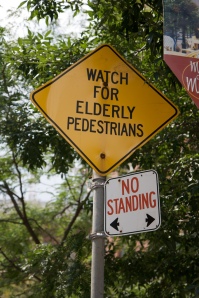 ‘Cramming’ is phone bill fraud.
‘Cramming’ is phone bill fraud.
Elders and others who require daily living assistance are susceptible.
But it can happen to anyone.
Kathy M. Kristof states that all crammers need is your phone number. Usually the charge ranges between $.99 and $19.99 – and it’s described in generic terms like service fee, call plan or membership to throw you off the track.
Here’s how it works:
One Missouri woman, for example, was charged for 25 months of long-distance services that she’d never ordered. When she finally discovered the charge and protested, the company said she’d authorized the service and provided her “authorization form” to prove it.
The only problem? This form included the wrong name, wrong address, wrong email and wrong birth date for the woman paying the bill. The only thing on the form that belonged to the victim was the phone number.
Read the entire LA Times piece on cramming here – then check your phone bill.
Photo courtesy of fwaggle.






